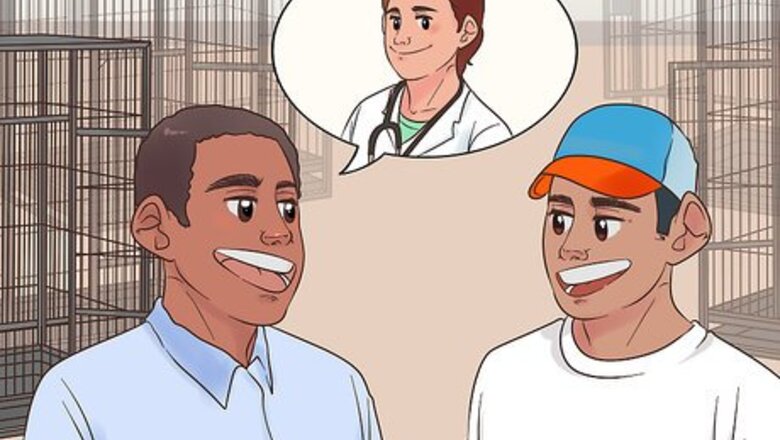
views
Getting Referrals and Recommendations
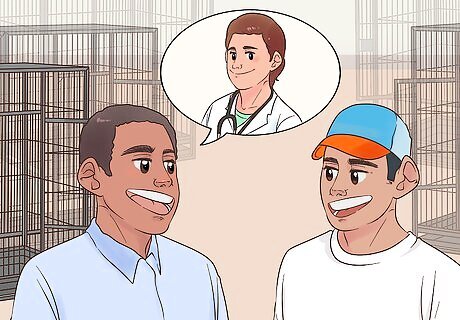
Ask your breeder or pet store for a vet referral. If you got your chinchilla from a reputable breeder or a trusted store that sources from reputable breeders, ask them for a recommendation. Most breeders and many pet stores will have relationships with small animal veterinary practices in nearby areas and can give you a contact at a local clinic. This is your chance to ask them not just about what vets around you will take chinchillas, but how each one will care for a chinchilla. Take the time to ask about previous experiences the breeder has had taking chinchillas to that vet.
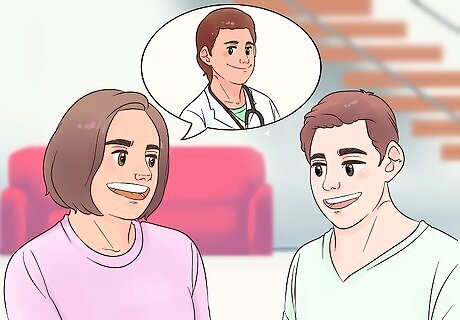
Talk to your friends with pets for a recommendation. Many vet clinics see different types of animals, so don’t be shy about talking to your friends with cats or dogs about their vet. If your friends speak highly of their vet, it may be worth giving that vet a call to see if they accept chinchillas as patients. If you know other chinchilla owners in your area, it is, of course, worth asking them for vet references. However, if you don’t know other chinchilla owners, you can ask any friend with a pet.
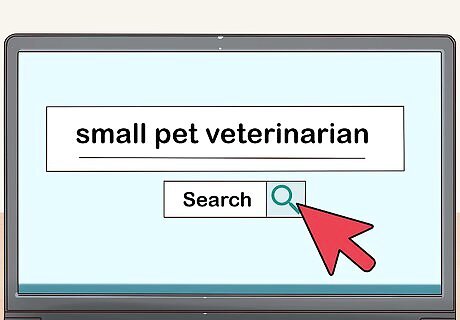
Search online for vets that specialize in small pets. If you can’t get recommendations online or you and your chinchilla recently moved to a new area, look for online recommendations. Read reviews for small pet vets in your area. You can even check chinchilla online forums or discussion threads to see if anyone can share personal experiences with you. Search online for chinchilla clubs or associations in your area. Members may be able to give you insight into chinchilla-friendly vets in your town.
Screening and Meeting Vets
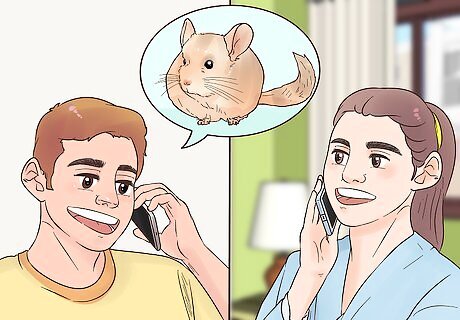
Call the vet to make sure they accept small animals. While many vets take small animal patients, not all do. Before you try to schedule an appointment, give any potential new vet a call to make sure they take small pets including chinchillas. This is especially important if you got your reference from a friend who does not have chinchillas themselves. However, even if you got your recommendation from your breeder, you should call to make sure the vet is accepting new small animal patients.
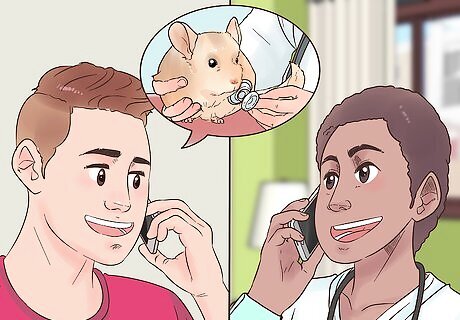
Ask specific questions about their chinchilla experience. Not all small animal vets have experience treating chinchillas. Ask a potential new vet about their experience diagnosing and treating common chinchilla health concerns like tooth root impaction. You want a vet that knows how to recognize and prevent common chinchilla health complications. See if the vet has any qualifications specializing in exotic animals or if they belong to any veterinary societies. Tooth root impaction is kind of like wisdom teeth impaction in humans. It’s a tooth problem that causes the teeth to grow into the jaw. It’s difficult for an inexperienced vet to recognize, but is most easily treated when it’s detected early. Your chinchilla will also need to go in at least once a year to get its weight checked. Talk to any potential vets about their experience with regular chinchilla health checks such as weighing.
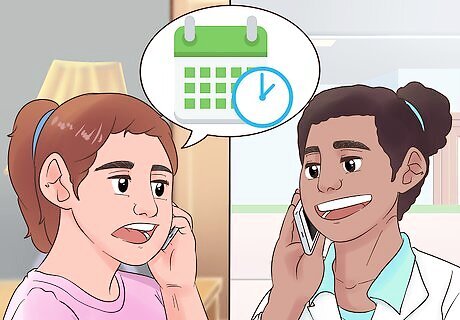
Schedule a meet-and-greet. Before you set up your first official vet appointment, ask to set up a meet-and-greet appointment between you, your chinchilla, and a potential vet. This gives you a chance to talk to a vet a bit more thoroughly. It also gives you a better sense of how a vet will handle and interact with your chinchilla. Many vets offer complimentary meet-and-greet appointments. These generally last around 10-15 minutes, and don’t usually include a health evaluation. Expect a tour of the facility and a chance to talk to the vet one-on-one for a few minutes. While you’re at this appointment, check in on things like if they accept walk-ins, who they partner with for after-hours emergencies, what services they offer in-house, and what professional staff helps support the clinic.
Making Appointments

Ask your breeder about a health guarantee for your first appointment. When you get a chinchilla, it usually comes with a guarantee stating that your new pet is healthy. Ask your breeder or pet store if there is a health guarantee checkup requirement. If there is, inquire with them about any arrangements they may have with local vets to get the checkup completed. You will typically have 48 hours to take your chinchilla to a vet or your guarantee may be void. Some breeders and pet stores have arrangements with vets that cover the cost of this appointment in the cost of purchase. In this case, simply go to the vet they tell you to see. Otherwise, ask if you can use the vet you chose.
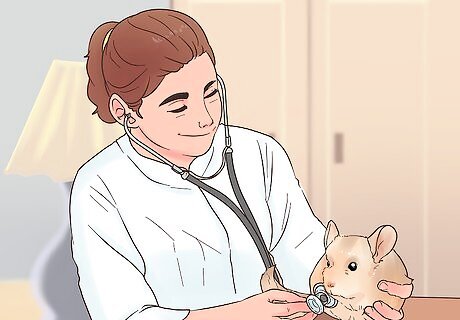
Set up a routine veterinary exam if the breeder doesn't offer a guarantee. If you are not fulfilling a health guarantee checkup, you can book your chinchilla for a regular wellness check with the new vet. The vet should check the chinchilla’s weight and teeth along with looking at their vitals and overall physical health.
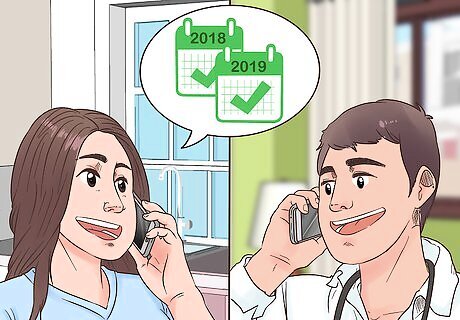
Schedule annual checkups for your chinchilla. A healthy chinchilla will also need an annual checkup, even if they show no signs of illness. This helps ensure it stays healthy over the course of its life. Plan to bring your chinchilla to the vet for an exam at least once per year.
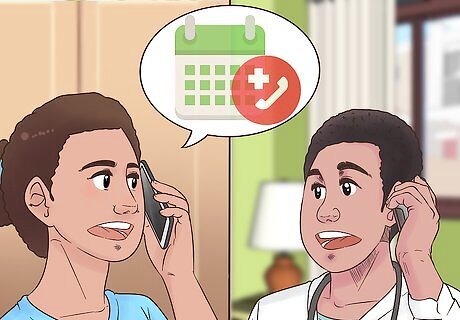
Book an emergency appointment if your chinchilla seems sick. Signs of illness in chinchillas can range from drooling, difficulty eating, and facial discharge to balding, panting, and mucus-covered droppings. If you notice any signs or symptoms of illness, schedule an emergency appointment with your vet as soon as possible. Chinchillas are prone to heat stroke and can lose consciousness if left in the heat too long. If your chinchilla is unconscious, do not wait for a vet appointment. Take it to an animal hospital right away. If your vet cannot see your chinchilla within 24-48 hours, depending on the severity of the symptoms, you may want to request a referral to another vet that has an open appointment.











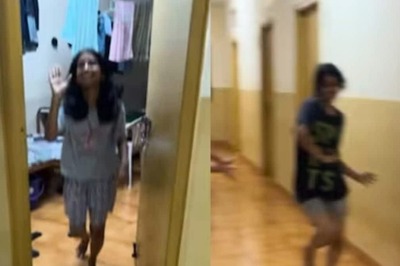
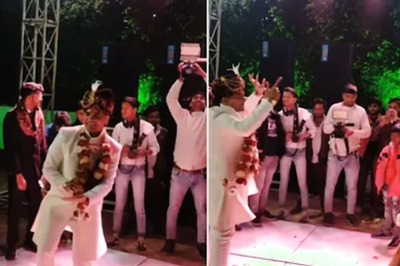
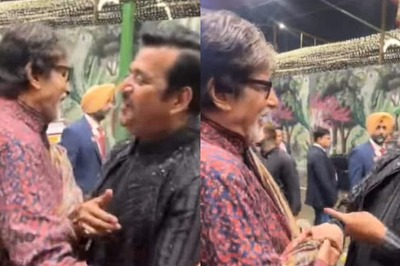

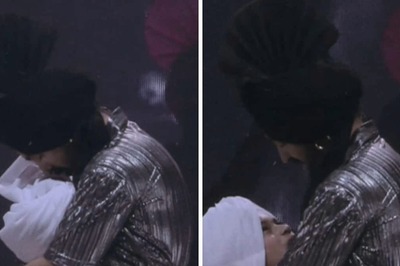

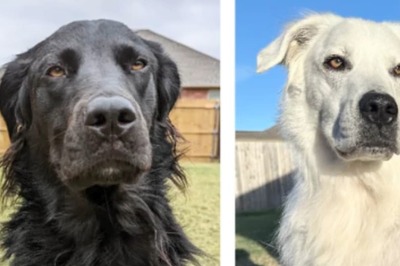


Comments
0 comment